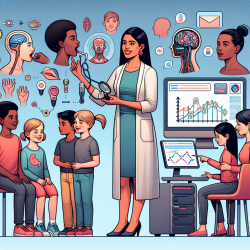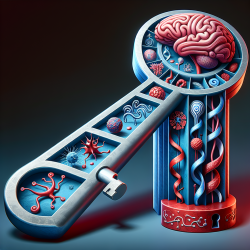Introduction
In recent years, the integration of technology into healthcare has opened new avenues for research and treatment. One such innovation is the use of smartphones for remote cognitive testing, as highlighted in the study "Feasibility and acceptability of remote smartphone cognitive testing in frontotemporal dementia research" by Taylor et al. This research underscores the potential of smartphone technology to facilitate decentralized clinical trials and improve access to research, particularly in the realm of frontotemporal dementia (FTD).
The Study: A Closer Look
The study involved 214 participants diagnosed with FTD or from familial FTD kindreds, who were asked to complete cognitive tests using the ALLFTD Mobile App on their smartphones. The results demonstrated that remote data collection via smartphones is not only feasible but also well-accepted by participants. The app includes a comprehensive battery of tests assessing executive functioning, memory, speech and language, and motor abilities.
Key Findings
- High Acceptance: Participants reported high familiarity with smartphones and found the time commitment acceptable, with 98% of respondents considering the time investment reasonable.
- Feasibility: Over 70% of tasks were completed, indicating that participants could effectively engage with the app on their own devices.
- Performance Correlation: Greater disease severity was associated with poorer performance across several tests, highlighting the app's sensitivity to cognitive decline.
Implications for Practitioners
For speech-language pathologists and other practitioners, these findings present an opportunity to incorporate smartphone-based assessments into their practice. By leveraging technology, practitioners can:
- Enhance accessibility to cognitive assessments for patients who may face geographical or mobility barriers.
- Gather data more frequently and efficiently, allowing for better monitoring of disease progression.
- Utilize gamified and engaging test formats that can improve patient adherence and data quality.
Encouraging Further Research
While the study provides promising insights, it also opens the door for further exploration. Practitioners are encouraged to engage in additional research to validate these findings across diverse populations and settings. Moreover, exploring the integration of such technologies into routine clinical practice could pave the way for more personalized and effective patient care.
Conclusion
The integration of smartphone technology into cognitive testing for FTD represents a significant advancement in research methodology. By embracing these innovations, practitioners can enhance their practice, improve patient outcomes, and contribute to the broader field of dementia research.
To read the original research paper, please follow this link: Feasibility and acceptability of remote smartphone cognitive testing in frontotemporal dementia research.










